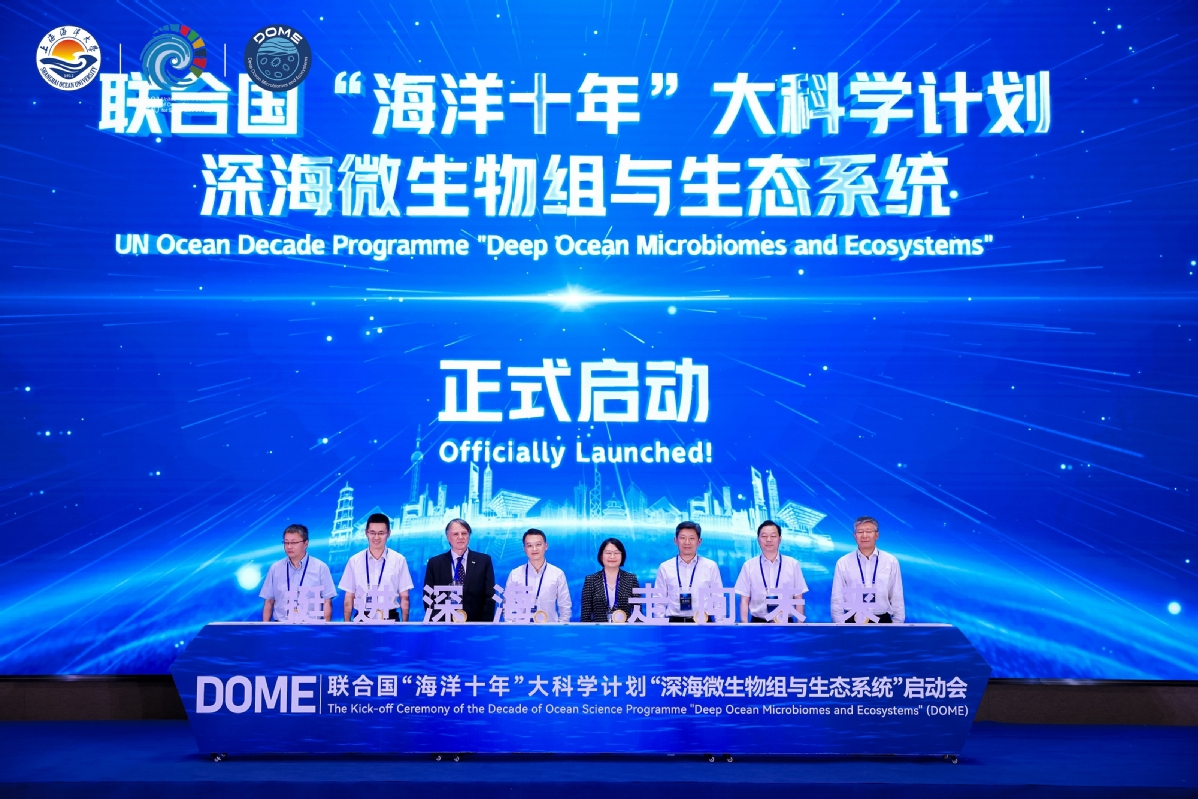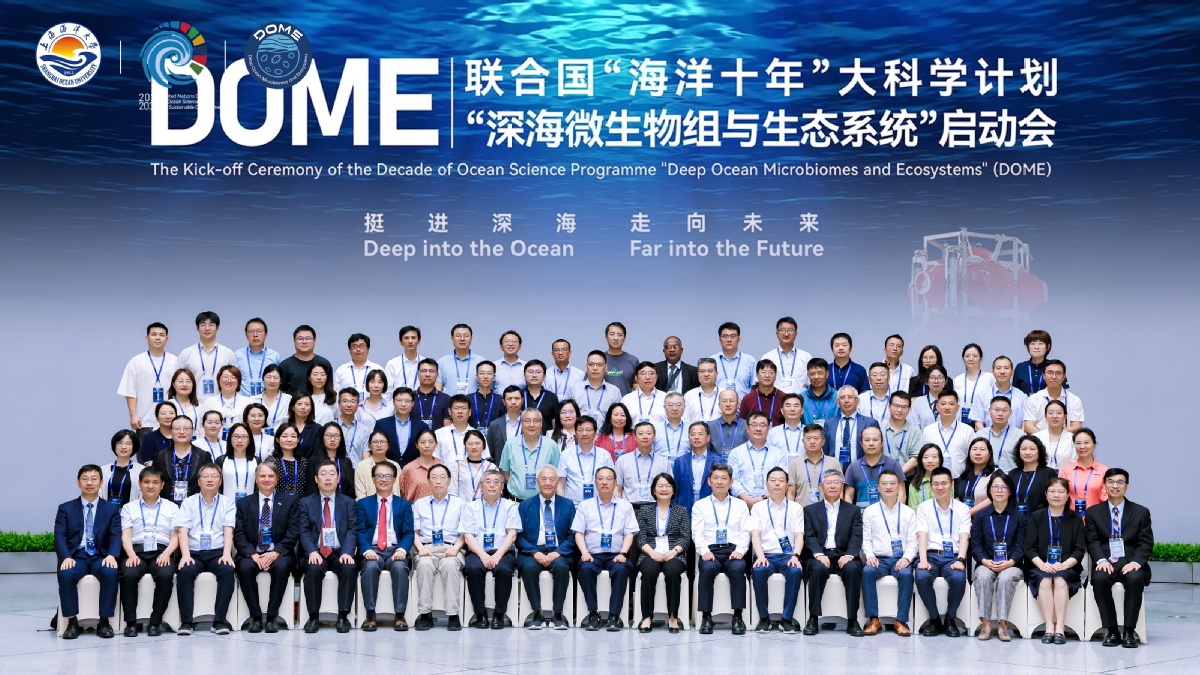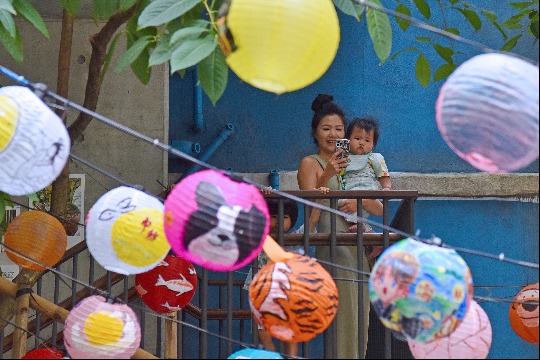Shanghai-based program aims to unlock the oceans’ secrets


The Deep Ocean Microbiomes and Ecosystems, or DOME, program, an important initiative of the United Nations Decade of Ocean Science for Sustainable Development, was officially launched in Shanghai on Friday, aiming to advance research into microbial diversity and contribute to responding to climate change.
Led by Professor Fang Jiasong from the Shanghai Ocean University, DOME is the first planetary-scale program under the UN Ocean Decade framework dedicated to exploring the deep ocean microbiome.
Uniting global experts from 42 academic institutions and international organizations in 27 countries across six continents, the program spans the deep waters of all five oceans with a strategic focus on hadal zone trenches and polar oceans.
DOME explores the taxonomic, genetic, and functional diversity of deep-sea microbes through the lens of marine ecosystems and their responses and interactions with climate change.
The program is also establishing a Deep Ocean Genome, or DOG, technical system, developing a global microbial repository of deep and polar ocean microbial resources, and promoting the conservation and sustainable use of marine biodiversity.
Fang pointed out that human knowledge of the deep ocean microbiomes is far from adequate and even less complete than the knowledge of the moon and the Mars.
He said: "More than 90 percent of the habitable space for organisms on Earth is in the deep ocean, 90 percent of marine biomass is microbial biomass, and at least 90 percent of marine microbiomes have not yet been discovered."
This lack of knowledge is mainly due to the shortage of technical approaches, said Fang.
However, research into the sector has been accelerating, along with technical advances in recent years, represented by the successful explorations made by China's Fendouzhe, or Striver, deep-sea manned submersible in the Mariana Trench in the western Pacific Ocean in 2020.
Fang pointed out that deep ocean microbiomes live in extreme conditions with high pressure, low temperatures, and limited food, which means they probably have certain mechanisms, genes, enzymes, or other traits that have enabled them to adapt to the environment.
"We see deep-ocean microbiomes as rich 'treasures', offering us rich and diverse biological resources, as well as infinite possibilities in sectors such as biomedicine, human health, bioscience, and global climate change governance," Fang added.
The program has its global headquarters in Shanghai Ocean University and has six regional centers in six continents.
Through global joint efforts, it will construct a global platform for research, support the sustainable use of ocean resources, and help fight climate change.
Curtis Suttle, a renowned professor at the University of British Columbia, said at the launch ceremony: "The DOME is international, inclusive, and opens up an entirely new avenue to unlock some knowledge that is completely unknown.
"If we are going to understand the world and the universe, we should start to unlock the secrets of the ocean first. With DOME, scientists from different countries all around the world can share, contribute, interact, and collaborate together. There will be lots of opportunities."

- Xu Kunlin named new top official in Liaoning
- Acrobatic extravaganza ERA marks 20th anniversary as it eyes more visitors
- China's contribution to talent cultivation for China-Laos Railway highlighted
- Intl circus festival opens in Wuqiao
- Xi's article on community for Chinese nation to be published
- SCUT vows overhaul of campus safety protocols after crash kills student




































